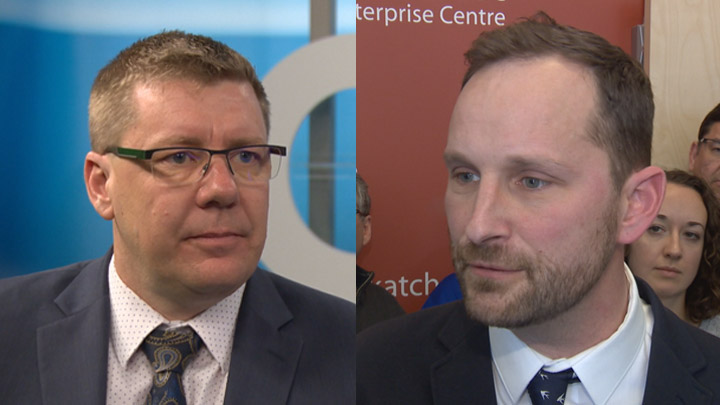Members of the legislative assembly from across Saskatchewan return to Regina on Wednesday for the first day in the third sitting of the assembly’s 28th session.

It will begin with Premier Scott Moe’s first speech from the throne, where he outlines the government’s agenda for the next year.
“We’re looking forward to conversations throughout the legislative session with respect to achieving our three-year plan to balance this legislative session, with a balanced budget being announced this spring,” Moe said.
The premier added touting Saskatchewan’s climate plan, Prairie Resilience, and opposing the federal carbon tax will continue to be front and center.
“We also look forward to having the discussion on how we can continue to move forward with investment in our communities and with services that people across this province expect their provincial government to be providing in their communities; Investments in healthcare, in education and post-secondary education,” Moe said.
In addition, Moe concluded that they will also be having discussions on how to give a hand up on the community’s most vulnerable.
Across the aisle, Opposition Leader Ryan Meili will be bringing in an additional MLA to the NDP benches in Yens Pedersen following the Regina-Northeast byelection.
“We haven’t seen any real action on the part of Scott Moe in terms of how he’d actually get people back to work. In fact, he’s persisted with the maintenance on the PST on construction labour and restaurant meals, which has continued to harm the economy,” Meili said.

Get daily National news
The NDP will also be targeting old favourites of theirs in question period, like the Global Transportation Hub, carbon capture and storage at Boundary Dam Three near Estevan, and the Regina Bypass.
“Why did the government choose to put money there, and who benefitted? Why did they choose to take money out of health and education and other key services?” Meili questioned.
Mental health will also be a focus of the Opposition’s strategy. Over the summer, Danielle Chartier was appointed mental health critic, a new role in the NDP caucus.
“We’re way behind, despite having really high levels of suicide and various mental illnesses when you compare to other provinces. What we want to do is elevate the focus, create a greater discussion around mental health,” Meili said.
The province’s goal is to reach seven per cent of the health budget going to mental health services when finances allow. Currently, mental health funding makes up for just over five per cent of the mental health budget. The national average is around seven per cent.
The MLAs will be in session until Dec. 6, before breaking for winter and returning in March of 2019.








Comments